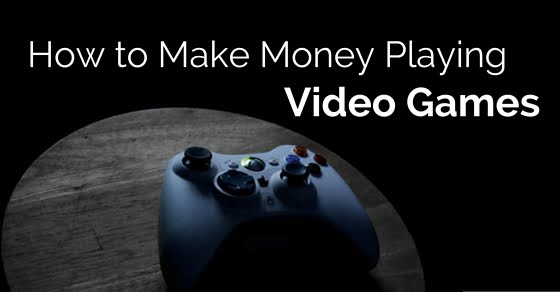

The main worry of Quantum Break’s villain is that time is an unbreakable loop, and that there’s nothing we do can do to avoid a predestined future. The hero thinks otherwise, and in keeping with his attitude the game encourages you to replay chapters to alter the story and its outcome. It’s a neat thematic link between the game’s structure and plotline, but when the gameplay involves doing the same old thing again and again it’s hard not to feel that maybe the bad guy was right after all.
The first time we saw Quantum Break was at the infamous Xbox One reveal in May 2013. It was only a brief clip, but that’s more than many other games got – as Microsoft chose to focus on it’s strange, and ultimately short-lived, obsession with TV programming. Developer Remedy have always been keen to experiment with live action footage in their games, via trailers and in-game TV shows, but the idea behind Quantum Break is to create a more equal mix of live action footage and third person action.
The plot of Quantum Break is actually very simple: a time travel experiment gone wrong gives two former friends time powers, one of whom uses it to build a global mega corporation and the other… tries to stop him. In the process time becomes broken, and is prophesied to end entirely if a special MacGuffin isn’t used to prevent it. And that’s really it. It’s the sort of bare bones plot that would seem perfectly acceptable as the backdrop for any ordinary action game, but is given entirely undue prominence here.
The story is better written than Alan Wake, but also fundamentally less interesting. The gameplay though is better in all regards, while still sharing a clear evolutionary link with Remedy’s previous work. At heart it’s a relatively straightforward third person shooter, complete with an automatic cover system and some overly showy Uncharted style animation. The latter can make movement quite imprecise, but the few platform sequences are slow-paced and not very demanding (or interesting).
The combat is very good though, with solid gunplay and a range of time-related superpowers. This include a shield, a dash, a projectile attack, and the key ability to stop time in a bubble – giving you a few seconds to pump as many bullets into it as possible, which then all fire at once when the bubble pops. It’s fun and engaging, with decent enemy artificial intelligence and relatively open areas in which to operate.
But unfortunately the combat suffers the same problem as Alan Wake, in that after all the abilities are introduced in the opening few hours it never really evolves beyond that. The problem isn’t as severe as Alan Wake, but unbeknownst to us the two-hour preview we had a few weeks ago, that incorporated most of the first act, featured almost all the abilities and enemies in the game. Even the backdrops are mostly the same throughout: either abandoned buildings or bland office/science labs. (Oddly the two exceptions both involve sea tankers, for some reason.)
There’s an upgrade system, but it’s very simple and rarely amounts to anything other than increasing the range or frequency of your powers. What puzzles there are, are all heavily signposted and although the game often features sequences reminiscent of that bit from X-Men: Days of Future Past, where Quicksilver is moving objects and bullets around as they lay suspended in space, they’re just cosmetic asides and don’t affect the gameplay.

The end result is a game that feels repetitive after just a few hours of play, and is so easy on the normal difficulty that you begin to sleep walk through the whole experience whether you’re playing the game or just watching it.
Rather than a blend of TV and games it quickly becomes obvious that the two very different forms of media are simply sandwiched together, interacting with each other in a far less profound way than Remedy initially implied. You play three chapters of the game, make a binary moral decision (as the bad guy), watch a 20-minute live action show, then go back to the game. We’re not going to say it’s a good idea in theory because we’re not sure it is, but instead we ask simply: why? What did Remedy hope to gain from it and what is it about the story that they felt necessitated mixing the entertainment equivalents of oil and water?
Neither the plot nor characters are complex enough to justify the jarring switch from playing a video game to watching 20 minutes of inoffensive TV. Apart from a large amount of screen tearing the graphics in the game are very good, with excellent likenesses of actors such as Shawn Ashmore (Iceman from the X-Men films) and Aidan Gillen (Littlefinger from Game of Thrones). If the script required some special subtlety in acting, that motion capture couldn’t pick up, we’d perhaps understand the need for the live action sequences. But there’s nothing here that couldn’t have been done in-game. And plenty that probably didn’t need to be done at all, given how unremarkable the plot is.

Even the big decisions are underwhelming, as there are actually very few of them and most don’t involve any real moral choice – just a coin flip between two fairly abstract plot points. More dammingly they don’t really make much difference to the game itself, creating only minor changes, such as a different non-player character in the gameplay or a few minutes of alternative footage in the TV segment.
None of this represents any terrible failing on the part of the game, but it does seem a very strange direction to take what is at heart a very straightforward experience. It’s also a very short one, and a single play through to your first ending doesn’t involve much more than eight hours of gameplay. Playing through every eventuality will take much longer, but the ratio of new scenes to old is low enough that most of that will just be repetition of things you’ve already seen and done.
Nothing about Quantum Break is bad, but it’s a crude mix of very basic and largely incompatible ingredients. Far from being a disaster it just feels undercooked. Not enough to give you salmonella, but certainly enough to make you wish for something more substantial to get your teeth into.
[Source:- Metro]





